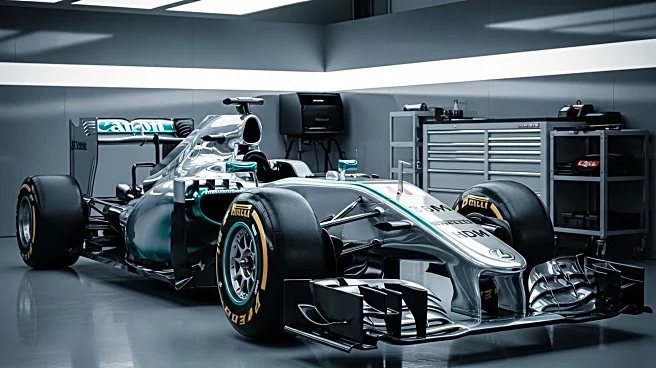What's Happening?
Romain Grosjean is set to drive a Formula 1 car for the first time since his dramatic crash at the 2020 Bahrain Grand Prix. The crash, which occurred on the first lap, resulted in his Haas VF-20 splitting in two and catching fire, leading to Grosjean suffering burns to his hands. Grosjean will reunite with Haas for a test at the Mugello circuit in Italy, driving a VF-23 chassis. The test will be overseen by Haas team principal Ayao Komatsu, who was Grosjean's race engineer during their time at Lotus. Grosjean expressed excitement about returning to F1, highlighting the significance of the event as he will wear a helmet designed by his children for what was meant to be his final F1 race in 2020.
Why It's Important?
Grosjean's return to Formula 1 is significant as it marks a moment of closure for the driver, who had to end his F1 career prematurely due to the crash. This test provides an opportunity for Grosjean to reconnect with his former team and colleagues, and it highlights the resilience and determination of athletes to overcome adversity. For Haas, the test serves as a chance to engage with their heritage program and showcase their commitment to former drivers. The event also underscores the advancements in safety measures within Formula 1, as Grosjean's survival from the crash was a testament to the sport's rigorous safety protocols.
What's Next?
Following the test, Grosjean may continue to explore opportunities within motorsport, potentially leveraging his experience in IndyCar and sportscar racing. For Haas, the test could lead to further collaborations with former drivers and enhance their heritage program. The event may also prompt discussions within the F1 community about safety innovations and the importance of supporting drivers post-career.
Beyond the Headlines
Grosjean's return to F1 highlights the emotional and psychological aspects of recovery from traumatic events. It serves as a reminder of the human element in sports, where athletes face not only physical challenges but also mental hurdles. The test at Mugello may inspire discussions on how sports organizations can better support athletes in their recovery journeys.









